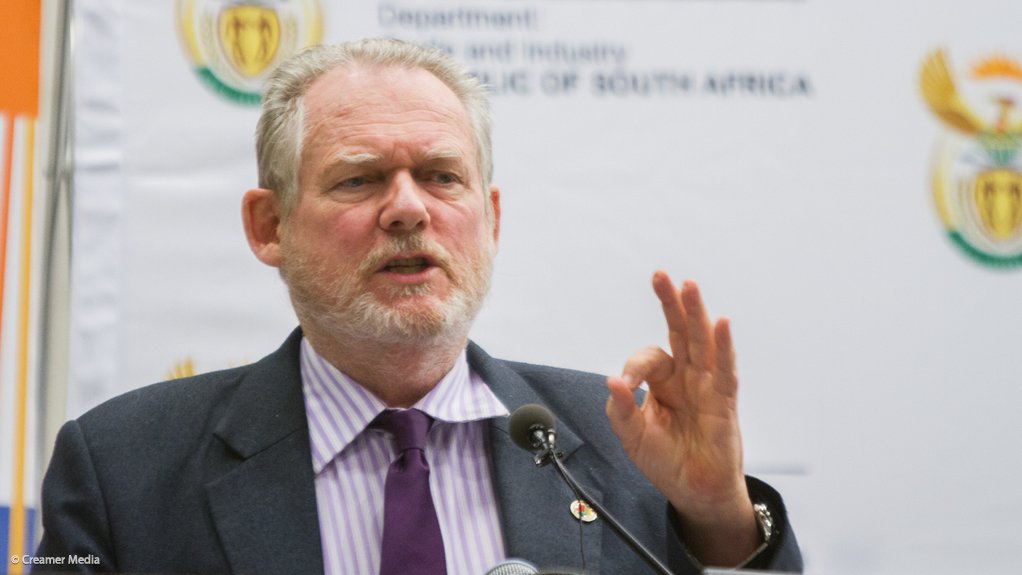The government has released its Industrial Policy Action Plan (Ipap) 2018, with a sharp focus on deepening industrial development, speeding up radical economic transformation and increasing the ability to produce higher value-added products.
Trade and Industry Minister Dr Rob Davies said it was still vital to make more structural changes so that more jobs could be created and South Africa could become more internationally competitive.
“Manufacturing and industrial development have not had the macroeconomic impact we believe is necessary to put the economy on a higher, more inclusive growth path, although there are signs and signals of strength in our industrial economy,” said Davies while presenting the tenth iteration of the Ipap at a media briefing at Parliament.
He said Ipap 2018 was designed to tackle the decline in South Africa’s industrial and manufacturing capacity and would also home in on transformation.
“The core to South Africa’s industrial policy is the objective of transforming the racially skewed ownership, management and employment profile of the economy.”
The plan also outlines its goals of promoting labour-absorbing industries, such as agroprocessing, eliminating corruption and collusion and tightening up procurement through secure compliance and verification.
“Procurement is a critical policy tool that becomes even more critical when financial resources from the public purse become more constrained, as they are right now. “
He said it was vital to change the tide on corrupt procurement practices so that local producers could benefit.
“We’ve had contracts and tenders outside the tender framework at the expense of local production.”
Davies also made clear that there was an "unresolved global crisis" spurred on by the US's Trump administration on steel tariffs.
“We have made it very clear to the Americans that we have been affected by it.”
He said the government would continue "to defend steel-making in South Africa" through tariffs and various rebates while a steel development fund would defend the downstream industry.
“We have managed to at least stabilise the sector.”
The Minister said an inter-governmental structure was being formalised to consolidate and enhance investment incentives. A Patriot (National Champion) Corporation Incentive would be developed for companies that voluntarily have their headquarters in South Africa and that produce a significant amount of their goods and services locally.
The department was also redoubling its efforts to promote South Africa and expand this across procurement decisions.
Support would be given to metal beneficiation for products linked to the Digital Industrial Revolution, including the localisation of some activities in the fields of artificial intelligence, robotics and machine learning, among others. There was scope for further assistance for manufacturers to pursue opportunities in global and domestic supply chains.
The plan says industrial policy needs to be the policy of the whole of government and that South Africa will need to keep up to speed and adapt to global trends, such as the digital industrial revolution, energy and carbon mitigation and waste management.
On beneficiation, the latest Ipap says South Africa must lift its hydrogen economy (platinum-group metals) and energy storage (vanadium, manganese and nickel) programmes to a higher level, in tune with the global drive to reduce emissions and adopt cleaner fuel cell and battery technologies.
Davies said despite slow growth in manufacturing, he is convinced that an industrial policy plan over the past ten years, with its incentives for industries, has been vital.
“If we didn't have an industrial policy plan, I am convinced that we would be talking about substantial de-industrialisation in South Africa. We would be lamenting the loss of the clothing and motor industry, and have seen significant decline in other manufacturing sectors. We would have been an economy, if we were lucky, with a tourism sector . . . we would have been trying to export a declining wealth base in primary commodities.”
He said there had been significant successes, with automotive exports doubling since the launch of the first Ipap and the revival of the clothing and textiles sector.
The first Ipap was launched at the onset of the global economic crisis ten years ago. South Africa was badly burnt by the global recession. The South African economy lost a million jobs, nearly a third of them in manufacturing. The report says apart from the recession in 2009, 2017 looks like the worst performance in the manufacturing sector, although output rebounded at the end of the year. Davies says indications are good that things are changing for the better. He said both investors and consumers were showing confidence in the economy, with Goldman Sachs intimating that South Africa could become the hot story for 2018, with plenty of opportunities.
The tenth Ipap has been welcomed so far.
“Policy consistency and alignment is critically important to manufacturers who require an environment in which industry can invest and grow,” said Manufacturing Circle executive director Philippa Rodseth.
“We support Ipap’s focus areas which are important in driving the growth of South Africa’s industrial base and agree that industrial policy needs to ensure that support for investment is integrated with support for transformation. Without transformation we cannot develop our sector.
“The Manufacturing Circle is pleased to note the Department of Trade and Industry's acknowledgement that the responsibility for South Africa’s industrial effort is a collective one, requiring all departments and agencies to take responsibility for fully aligning their policy and programmes with the broader industrial agenda.”
EMAIL THIS ARTICLE SAVE THIS ARTICLE ARTICLE ENQUIRY FEEDBACK
To subscribe email subscriptions@creamermedia.co.za or click here
To advertise email advertising@creamermedia.co.za or click here











